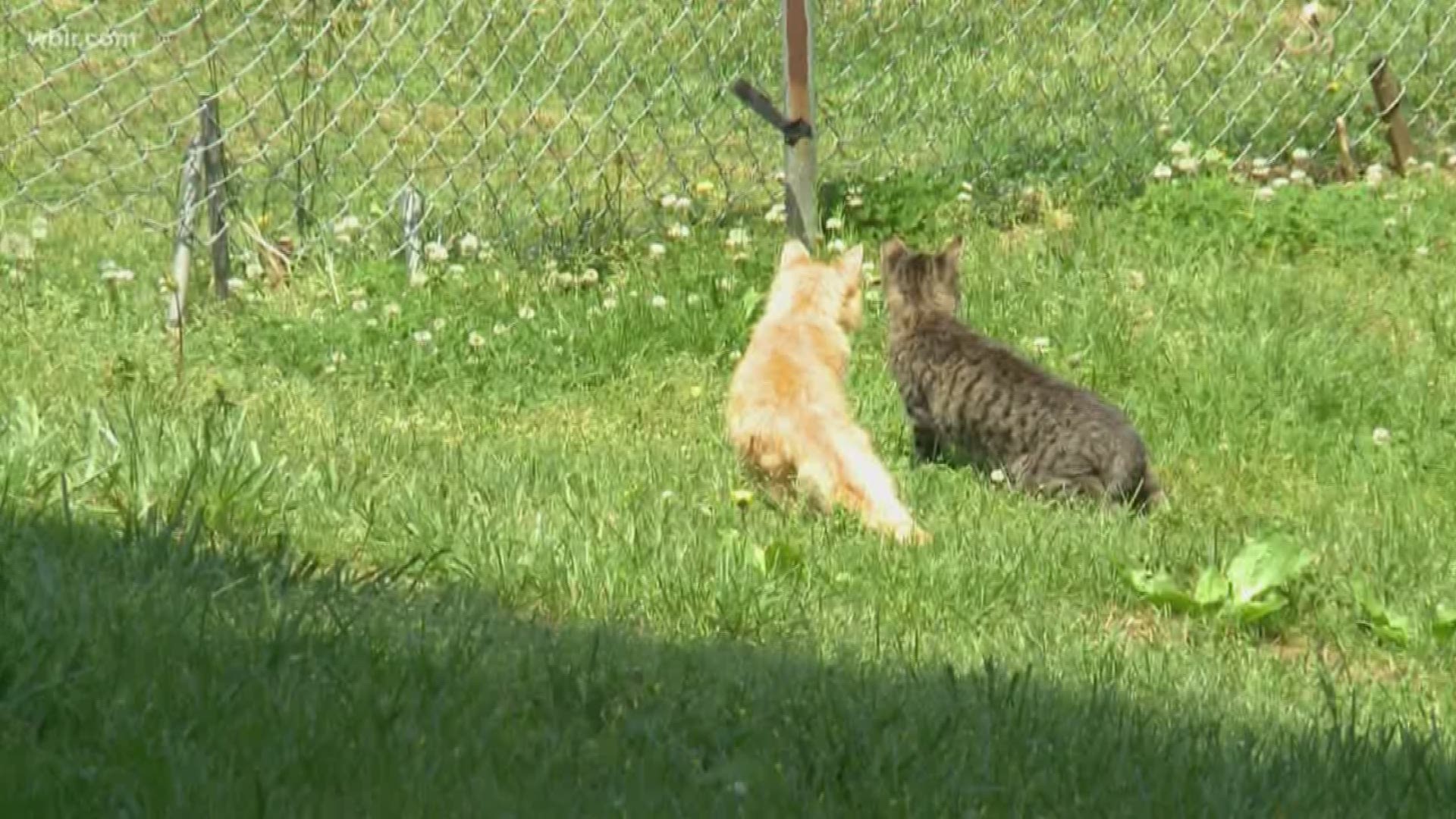Feral cats in Hamblen County are now living out their lives in the wild without adding to the growing population.
"We formed a little committee called the TNR," Wayman Skelton, a volunteer with the Morristown Hamblen Humane Society, said. "That stands for trap, neuter and return."
Skelton and volunteers are in the cat catching business. Not house, but feral cats. They live in groups called colonies in the wild and, for the most part, can't be adopted.
"If the cats run into a municipal shelter, many times they are put down. In this way they are released out into nature and they can live their lives," Skelton said.
Once trapped, the cats are neutered. That's where the UT College of Veterinary Medicine comes into play.
"One of our main aims is to decrease that environment and contain the colonies," said Dr. Jennifer Weisent.
Feral cats can reproduce quickly, one turns to 12 in a year.
RELATED | Fosters saves lives at animal shelters
"In the eighth year, there will be over 2 million cats. It's hard to believe, but it grows exponentially," Skelton said.
Veterinarians with UT add, a smaller population helps prevent the spread of disease, making a better community for cats and humans alike.
After some time to recover, it's now time to release the cats. Skelton and the volunteers loaded the cages and brought them back to where the animals were found. Skelton hasn't always had a soft spot for our feline friends.
"You know, I'd have to say years ago, I cared nothing [about] dogs or cats, either one, but my wife taught me," said an emotional Skelton.
It's an emotional day any time you get to save a life.
"It is, letting them live their life and not be put down."
Skelton works closely with Best Friends Animal Organization, a nationwide group with the goal of making all shelters no-kill by 2025. For more information on Best Friends, you can go to the website here.

